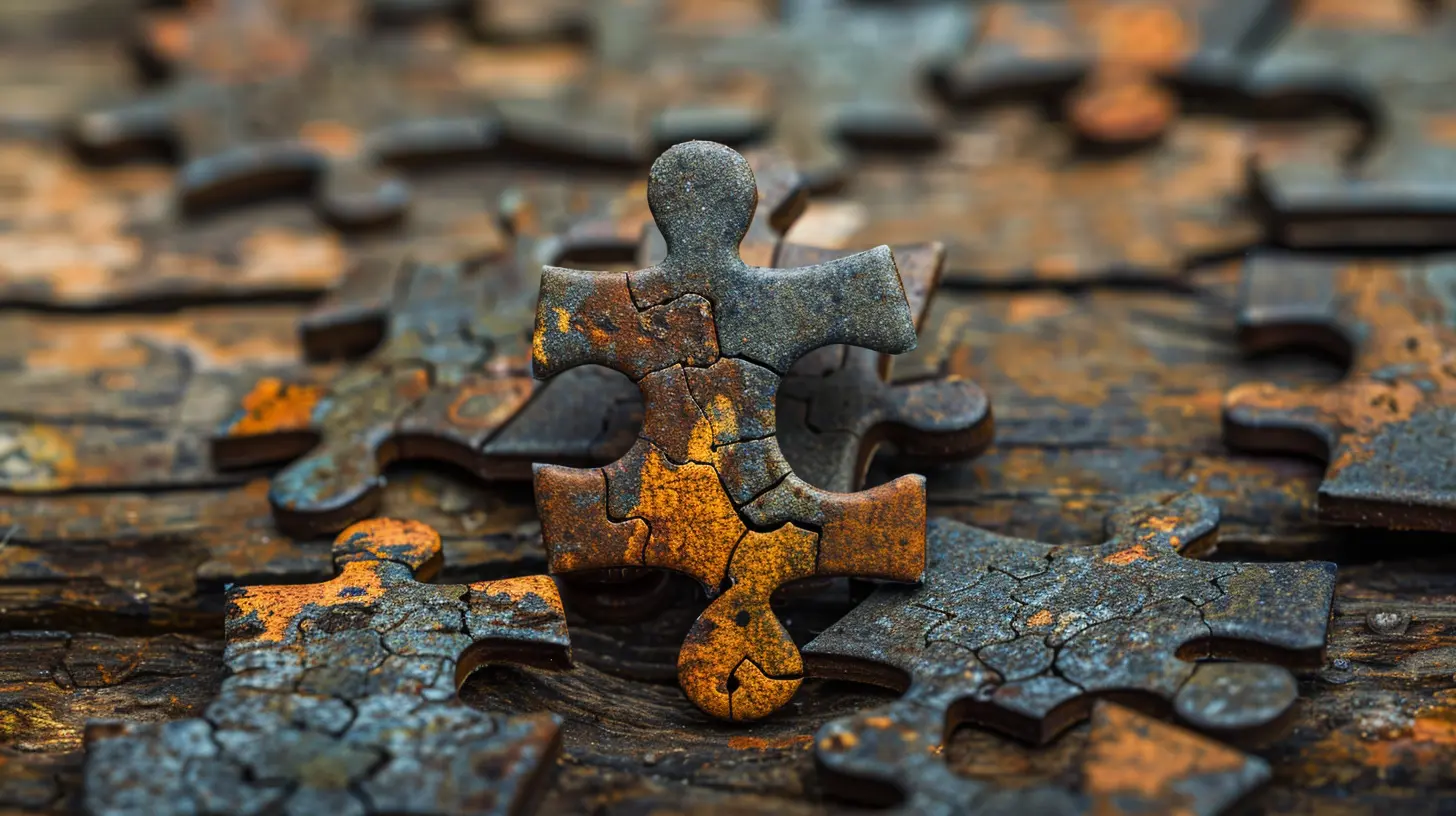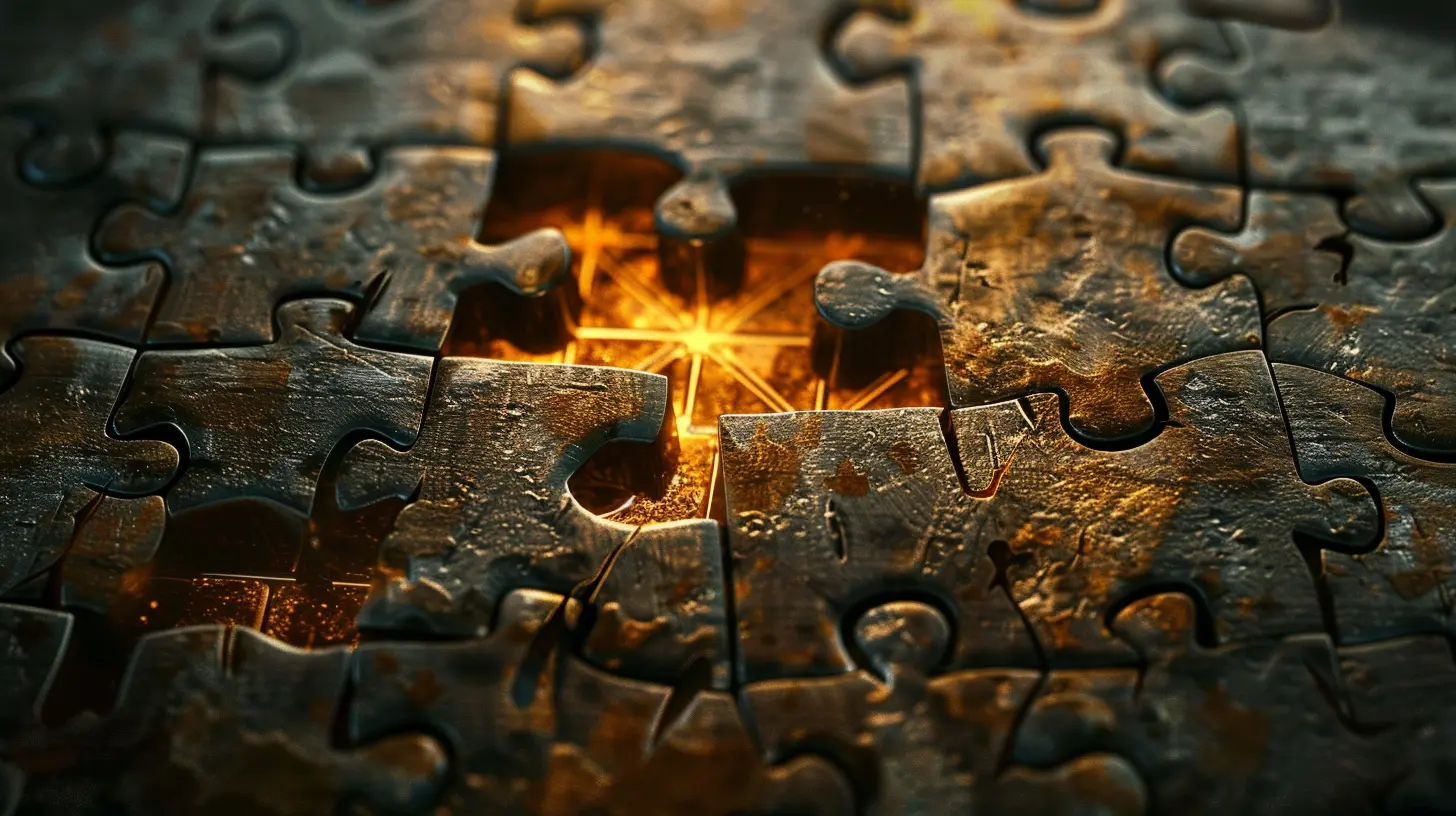How Puzzle Games Boost Your Problem-Solving Skills
25 October 2025
Have you ever found yourself losing track of time while piecing together a jigsaw puzzle or solving a Sudoku grid? Puzzle games are more than just a way to pass the time—they are mental gyms that can supercharge your problem-solving skills. Think of your brain as a muscle, and every puzzle you tackle is a set of reps. The more you solve, the stronger your mental muscles grow. But how exactly do these games help? Let’s dive deep into the fascinating world of puzzle games and see how they hone your problem-solving prowess.
The Brain's Workout: How Puzzle Games Train Your Mind
Imagine your brain is a detective, and puzzles are the mysteries to be solved. Each time you face a challenge, your mind springs into action, analyzing patterns, weighing options, and strategizing steps. Whether it’s a crossword, a Rubik’s Cube, or a mobile app packed with logic puzzles, these activities push your brain to think critically.Puzzle games pump life into your cognitive faculties. They improve memory, sharpen focus, and even encourage out-of-the-box thinking. Kind of like giving your brain a refreshing jog after a long day!
Improved Pattern Recognition
Have you noticed how puzzles are all about spotting patterns? Take Tetris, for example. You're constantly scanning for shapes that fit into spaces, like solving a visual jigsaw. This knack for recognizing patterns doesn’t just help in games—it spills over into real life too! From spotting traffic trends to organizing your day more efficiently, you begin seeing connections others might miss.When you can zero in on patterns in a puzzle, you’re essentially rewiring your brain to spot patterns in complex scenarios. It’s like putting on glasses that magnify hidden details in everyday life.
Decision-Making on the Fly
Ever played a real-time puzzle game where you’ve got seconds to make a choice? Games like these force you to decide quickly under pressure. Do you rotate the falling block left or right? Do you take the left path in a maze or the right? These rapid-fire decisions are just like what you face in real life—choosing the fastest queue at the supermarket, deciding which exit to take during traffic, or prioritizing tasks at work.Puzzle games train you to think on your feet and trust your gut instincts, skills that are invaluable when faced with uncertainty. It's like mental boot camp for decision-making. 
Boost Your Memory, One Game at a Time
If memory is a vault, puzzle games are the key. Think about it: when you play a memory-based puzzle like matching cards, you’re actively exercising your recall. The more you play, the better you get at holding and retrieving information.This translates into real-world benefits too. Can’t remember where you left your car keys? Or what groceries you need? Puzzle gaming could be your secret weapon for turning your forgetfulness into a superpower.
Strategizing Like a Pro
Remember playing chess, where every move had to be two steps ahead of your opponent’s? That’s strategy in action. Many puzzle games require similar forward planning. You need to anticipate outcomes, weigh risks, and map out possible solutions.When you’re strategizing in puzzle games, you’re essentially practicing life skills. Planning a trip, managing finances, or arranging a surprise party all involve careful thought. Puzzle games are like a dress rehearsal for real-life problem-solving. 
Thinking Outside the Box: Creativity Meets Logic
Ever feel like you’re stuck in a rut with your thinking? Puzzle games are the perfect brain reboot. They teach you to look at problems from fresh angles. Take escape room games, for example—they’re the ultimate test of lateral thinking. You’re forced to dig deep and find creative, unconventional solutions.By training your mind to think outside the box, puzzle games make you more adaptable. And in today’s fast-paced world, adaptability is the name of the game.
Collaboration and Teamwork
Who says puzzles are a solo activity? Multiplayer puzzle games like "Keep Talking and Nobody Explodes" are a masterclass in communication and teamwork. You learn how to convey information clearly, listen actively, and coordinate strategies—all while having a good laugh with friends.These skills translate seamlessly into the workplace, where collaboration often makes the difference between success and failure. 
Stress Relief: The Zen of Puzzle Solving
Life can get chaotic, but puzzle games are like a mental oasis. There’s something deeply satisfying about finding solutions and seeing progress. They calm your mind, like yoga for your brain. The repetitive, focused nature of puzzles can even invoke a meditative state, relieving stress and anxiety.So next time you feel overwhelmed, consider picking up that Sudoku book or firing up a game of Candy Crush. It might just be the mental breather you need.
Building Persistence and Grit
We’ve all been there—staring at a puzzle that seems impossible. Every solution you try ends in frustration. But then, you stick with it, and suddenly, it clicks! That moment of triumph is a lesson in persistence.Puzzle games teach you not to give up easily. They encourage you to tackle challenges head-on, a trait that’s incredibly valuable in real life. After all, when life throws you curveballs, a little grit goes a long way.
Real-Life Analogies: Applying Puzzle Skills to Everyday Problems
Picture this: Your car won’t start, and you’re running late. Instead of panicking, your brain switches into puzzle mode. You troubleshoot the possibilities—dead battery? Loose wires? Faulty starter? Congratulations, you’ve just applied your puzzle-solving skills to a real-world problem.Whether it’s fixing gadgets, resolving arguments, or cracking tough assignments, the mental tools you gain from puzzle games are endlessly useful.
Gamifying Self-Improvement
One of the coolest things about puzzle games? They let you grow without you even realizing it. You're having fun, but in the background, your brain is transforming. It’s like sneaking veggies into a dessert—sweet and beneficial!Why Puzzle Games Are for Everyone
You don’t have to be a brainiac to enjoy puzzle games—there’s something for everyone. From classic crosswords to modern apps like Monument Valley, the variety is endless. They’re accessible, engaging, and downright addictive (in a good way).So, whether you want to boost your memory, sharpen your focus, or just unwind after a long day, puzzle games have your back.
Final Thoughts
Puzzle games aren’t just time-killers; they’re skill-builders. They improve your pattern recognition, boost your memory, and hone your decision-making skills. They teach you persistence, creative thinking, and even teamwork.The best part? They make learning fun. So the next time someone asks why you’re glued to your Sudoku or sliding tiles around on your phone, just tell them you’re sharpening your problem-solving skills. After all, life itself is the ultimate puzzle.
all images in this post were generated using AI tools
Category:
Puzzle GamesAuthor:

Leif Coleman
Discussion
rate this article
1 comments
Uriel Moore
Puzzle games uniquely enhance problem-solving skills by engaging players in critical thinking and strategy formulation. These games encourage a trial-and-error approach, fostering resilience and adaptability. As players navigate increasingly complex challenges, they develop cognitive flexibility, which translates seamlessly to real-life situations, making them not just entertainment, but valuable brain training tools.
October 28, 2025 at 4:35 AM

Leif Coleman
Thank you for your insightful comment! I completely agree—puzzle games are indeed excellent tools for enhancing critical thinking and problem-solving skills through engaging and adaptive gameplay.


